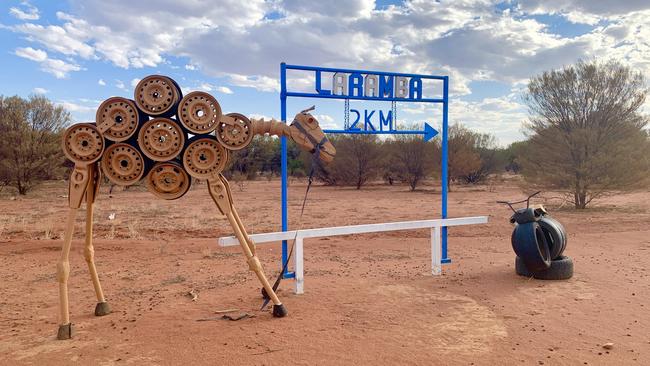Bungled scheme forces $70m remote rent write-off
The cash-strapped NT government has been forced to write off about $70 million worth of bungled remote rental debts amid a legal battle.

The cash-strapped Northern Territory government has been forced to write off about $70m worth of bungled remote rental debts amid a legal battle in which a tribunal found it could neither enforce tenancy agreements nor prove how much tenants owed.
The funds, which were meant to be collected and reinvested in upgrading dilapidated Aboriginal housing, pertain to 7746 remote tenant accounts for which debts were deemed “uneconomical or unable to be recovered”.
Daniel Kelly, a solicitor for Australian Lawyers for Remote Aboriginal Rights representing two communities, said his clients were faced with unsubstantiated accusations of rental debts on top of “having no choice but to rent houses which are inhumane”.
“It was extremely distressing for the people living in Santa Teresa, who were simply seeking to have their rental homes repaired to the legal standard, to have a huge amount of debt, about $20,000 a household, levelled at them by the government out of nowhere,” he said.
“The problem arose due to the complexity of the rental system and poor record keeping and administration by the department.
“Our clients have always maintained they have paid what they were asked and had no knowledge of the debts until they took legal action to try and improve housing conditions.”
The debts accrued under a Labor-designed scheme billed in 2010 as delivering “long-lasting improvements” to “ensure people in the bush pay fair rents” and get better housing.
In 2012, The Australian revealed the case of a Santa Teresa man being charged $27 a week for a rusty outdoor bed near a chook shed.
Further problems emerged through a landmark 2016 test case run by ALRAR in which disadvantaged Aboriginal people, for the first time, sued the government over the housing failings highlighted in numerous official reports and media exposes.
Seventy class-action members from Santa Teresa complained about poorly maintained properties without electricity, hot water, cooking facilities or functioning toilets.
They were eventually awarded $15,000 in compensation.
The government appealed the decision – seeking to undo changes that raised the legal standard for housing deemed appropriate – but was last year told it had a duty to provide housing that was not only safe but also reasonably comfortable, according to contemporary standards.
Governments have spent billions of dollars on often scandal-prone programs intended to bring remote Indigenous housing up to acceptable standards, but widespread overcrowding and maintenance problems remain.
Midway through the legal saga, in 2017, The Australian foreshadowed millions of dollars worth of rental debts would likely prove unenforceable thanks to shoddy bookkeeping.
The government had counterclaimed $1m worth of unpaid debts, seeking to unravel the Santa Teresa class action but was unable to prove its case.
A group of residents in the tiny central Australian community of Laramba is now following those in Santa Teresa in seeking compensation for poorly maintained homes.
At a case hearing last week, a government witness admitted remote rental debts had been written off after initially claiming privilege on the information.
Belinda Lowe, head of strategic communications for the Grata Fund, which is backing the litigation, said questions remained about the $70m figure, given the government’s failure to substantiate alleged rental debts in Santa Teresa.
“Wiping the alleged debt is another example of the government imposing top-down policy on to First Nations communities without the genuine and meaningful involvement of Aboriginal community-controlled organisations, and ultimately failing,” she said.
“You would hope the government would learn from the mistakes made by successive Territory governments and engage with Aboriginal community-controlled organisations on the review into public housing rent. Without this approach, any new framework is doomed to fail.”
Labor will this week unveil a new remote rental framework built around charging per room rather than per property.
Almost 70 per cent of households are expected to see their rents increase under the reform.
A research paper published by the Australian National University called the new policy “radical” and said it would redistribute the cost burden of supplying appropriate housing away from the government and “on to impoverished Aboriginal citizens”.
Ms Lowe said her organisation understood rental debts could accrue between December 11, 2021, and when the new framework was implemented in September.
A spokeswoman for Housing Minister Selena Uibo confirmed that $69.7m worth of remote rental debts accumulated since 2010 had been written off but said Ms Uibo was unavailable for further comment.




To join the conversation, please log in. Don't have an account? Register
Join the conversation, you are commenting as Logout